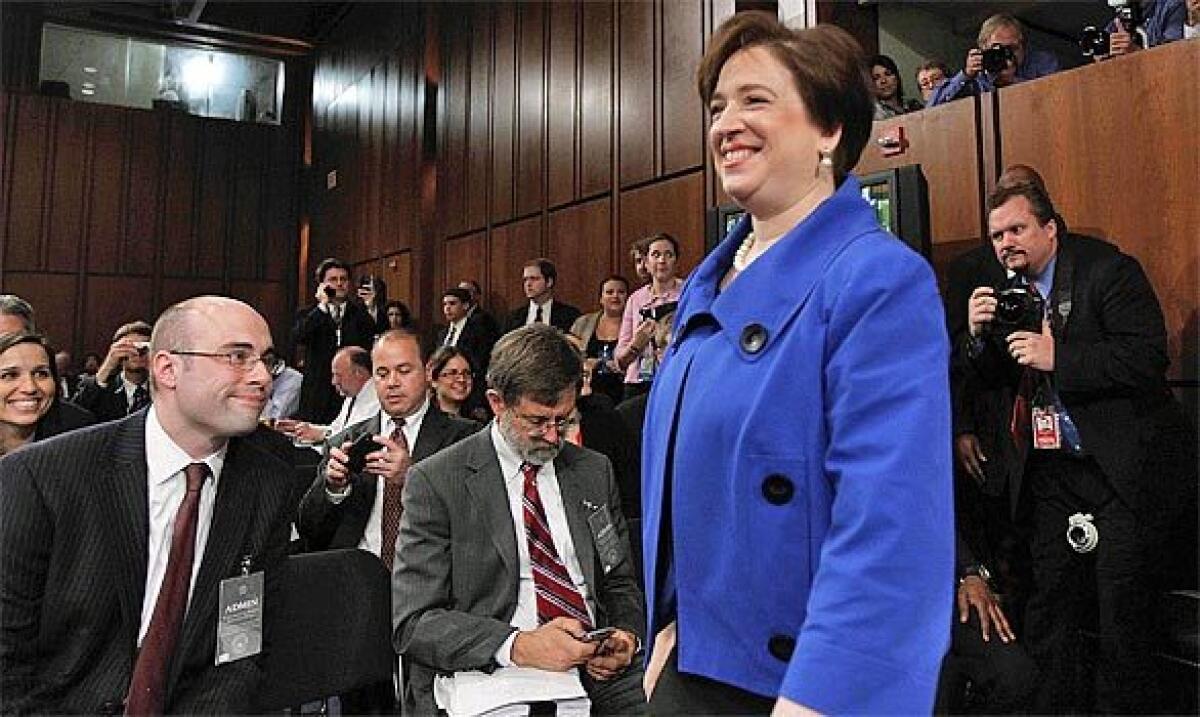Editorial: Defendants who can’t tell right from wrong shouldn’t be convicted

The Supreme Court is supposed to be the ultimate guarantor of fairness in the judicial system. The court sadly abdicated that responsibility Monday, when it ruled that states may convict a mentally ill defendant even if the defendant didn’t know that what he was doing was wrong.
By a 6-3 vote, the justices ruled that Kansas didn’t violate the Constitution’s guarantee of due process of law in the 1990s, when it enacted a law weakening its definition of legal insanity. The decision upheld the conviction of James Kahler in the murder of four family members.
The definition of legal insanity used by many states, including California, traces back to the so-called M’Naghten Rule adopted by Britain in the 19th century. Under that rule, a defendant can be found not guilty by reason of insanity if, because of a mental disease, he either didn’t understand the “nature and quality” of his act or didn’t realize that what he was doing was wrong.
Although the insanity defense is rarely asserted and seldom successful, it stands for an important principle: that it is unfair to hold defendants criminally responsible for the delusions of a disturbed mind. Upholding that principle doesn’t mean that the safety of the public will be endangered. Contrary to popular belief, defendants acquitted by reason of insanity typically don’t walk free; they are far more likely to be confined to mental institutions. John W. Hinckley Jr., who was acquitted of attempting to assassinate President Ronald Reagan in 1981, remained in a Washington, D.C., hospital until 2016.
After an uproar over Hinckley’s acquittal, several states moved to abolish or weaken insanity defenses. Kansas’ revision of its insanity defense meant Kahler couldn’t argue that mental illness made it impossible for him to tell right from wrong, one of the two pillars of the M’Naghten Rule.
Writing for the court, Justice Elena Kagan said the U.S. Constitution doesn’t require the states to offer such a defense or to adopt any particular definition of legal insanity. She noted that Kansas does allow defendants to argue that mental illness made it impossible for them to form the necessary criminal intent.
But as Justice Stephen Breyer pointed out in his dissent, “Kansas has not simply redefined the insanity defense. Rather, it has eliminated the core of a defense that has existed for centuries.” Now that the court has upheld Kansas’ law, other states may eliminate the defense that a defendant couldn’t tell right from wrong. That won’t make citizens any safer, but it will erode the fairness of the criminal justice system.
More to Read
A cure for the common opinion
Get thought-provoking perspectives with our weekly newsletter.
You may occasionally receive promotional content from the Los Angeles Times.










